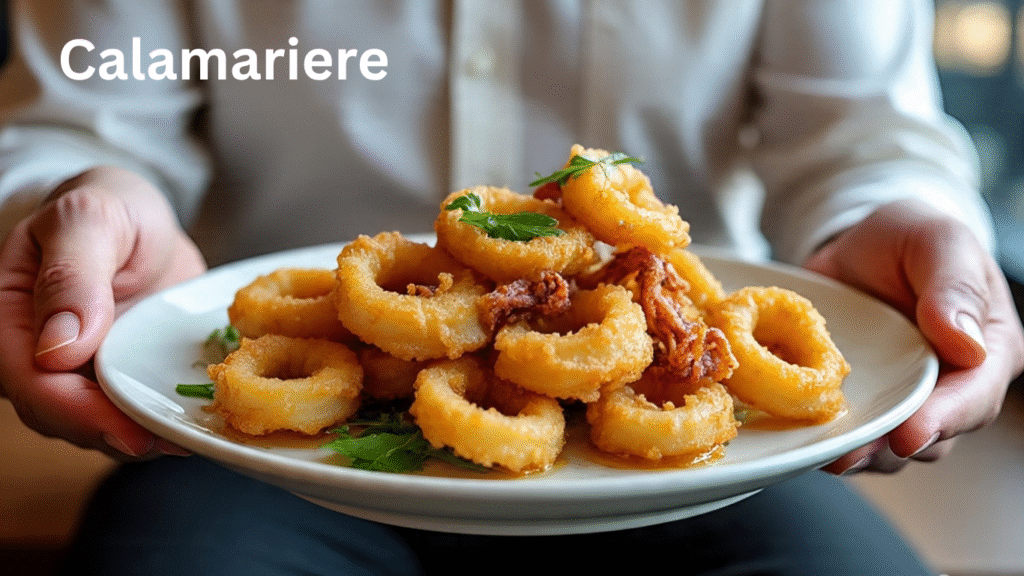In an era dominated by automation, AI-powered assistants, and digital communication, the role of the calamariere a traditional figure often rooted in Italian cultural and organizational contexts might seem outdated. However, this role still holds relevance and importance in modern times, especially in sectors where personalized service, human discretion, and refined organization are paramount.
This article offers a deep dive into why the role of calamariere still matters, what challenges it faces today, and how it adapts to the needs of modern institutions, from fine dining to executive administration.
Understanding the Calamariere
The term calamariere carries layered meanings depending on context:
- In historical Italian settings, a calamariere referred to a secretary or personal assistant, managing everything from correspondence to household affairs.
- In modern Italian hospitality, particularly in upscale dining, a calamariere may refer to the maître d’ or reservation manager, who orchestrates guest experiences.
- It is also sometimes used to refer to elegant document folders or desk accessories, indicating refined organization.
Each of these interpretations underscores responsibility, order, and discretion, and this foundational relevance explains why the role persists in modern forms.
Key Factors That Make the Role Relevant Today
1. Human-Centric Service and Personalization
In environments such as high-end restaurants or luxury hotels, digital booking tools and AI can handle logistics but they can’t match the calamariere’s human intuition. Understanding guest preferences, reading body language, and adjusting seating arrangements on the fly are human skills that remain irreplaceable.
Tradeoff: Digital systems are faster and cost-effective but lack empathy. Relying solely on tech could diminish guest satisfaction in luxury settings.
2. Trust and Confidentiality in Executive Roles
In business or political contexts, the modern calamariere often operating under the title of executive assistant or chief of staff plays a central role in coordinating complex schedules, confidential communications, and strategic decisions. They become an extension of their principal’s judgment and discretion.
Challenge: With increasing data breaches and privacy concerns, having a trusted human calamariere can safeguard sensitive information far better than systems vulnerable to cyberattacks.
3. Cultural and Aesthetic Value
The calamariere also symbolizes aesthetic discipline and professional decorum whether as a person or an object. In fields like law, architecture, or diplomacy, maintaining orderly documents in leather-bound folders (also called calamariere) reflects professionalism and care.
Balance: While minimal digital workflows are efficient, tangible organization tools still carry weight in formal, high-stakes environments.
Modern Adaptations of the Calamariere Role
In the Corporate World
Calamarieri are evolving into strategic support professionals. They may manage digital calendars, organize hybrid meetings, and coordinate remote teams all while maintaining the core value of in-person judgment and time management.
In Hospitality
The modern calamariere blends digital reservation tools with human interaction, handling last-minute guest requests, complaints, and special accommodations with finesse.
In Design and Stationery
The physical calamariere (notebook holder or organizer) has adapted into luxury productivity tools, favored by professionals who appreciate tactile engagement and symbolic order over purely digital solutions.
Challenges and Considerations
Technology vs. Tradition
Modern systems offer automation and scalability. However, removing the calamariere may reduce the human touch, which is critical in emotionally charged or high-value environments.
Training and Recognition
Many organizations fail to invest in training or properly recognizing the modern calamariere, viewing them as secondary rather than central. This undermines the role’s effectiveness and long-term viability.
Maintaining Relevance
The calamariere must evolve, embracing tech-savviness while upholding the core values of discretion, organization, and service.
The Broader Impact of Preserving the Role
When organizations consider eliminating or underutilizing the calamariere role, they risk more than logistical inefficiencies. They erode institutional memory, personal service quality, and even trust. Conversely, by elevating and adapting this role, institutions can foster resilience, agility, and culture all vital in today’s volatile environment.
Conclusion
The role of the calamariere still matters in modern times because it represents a blend of human intellect, cultural heritage, and personalized service that technology cannot fully replicate. Whether organizing a diplomat’s day, seating a VIP guest, or maintaining the elegance of physical records, the calamariere person or object anchors professionalism in a digital age.
As organizations seek to balance efficiency and empathy, cost and quality, the modern calamariere serves as a living example of how the past can enrich the present, providing a compass for decision-making in increasingly impersonal systems.



